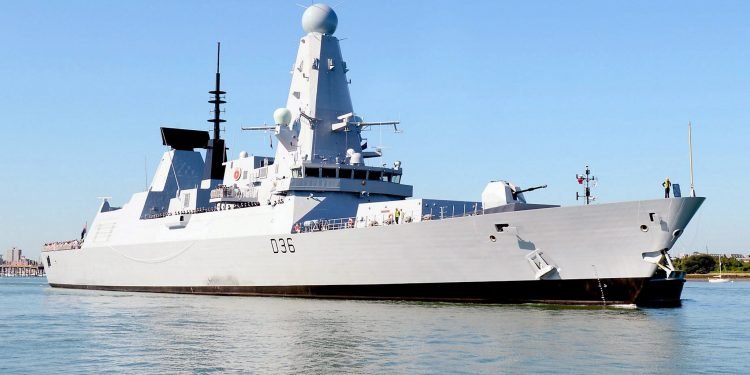Greece (Brussels Morning) Following the escalation of tensions between Israel and Hamas in Gaza, the Iran-backed Yemeni Houthis have intensified their targeting of vessels navigating the southern Red Sea, Bab-al-Mandeb Strait, and the Gulf of Aden. Specifically, they have been targeting Israeli, American, and British-affiliated shipping in these key maritime routes. Since the start of February, four vessels with these affiliations have already been attacked by the Houthis, highlighting a persistent threat to maritime security in the region.
Regional Instability
There exists a misconception within certain sectors of the industry that certain affiliations may provide immunity from attacks. However, the widening scope of Houthi targeting, particularly towards Israeli-affiliated vessels, demonstrates that these assumptions are unfounded. It underscores the importance of continuously reassessing risk profiles in light of evolving threats.
A threat alert issued on February 2, 2024, emphasizes the significant and complex nature of the threats in the region. Despite an unprecedented international naval response aimed at degrading Houthi capabilities, attacks on shipping continue. Additionally, as affiliated vessels seek alternative routes such as rerouting around the Cape of Good Hope, the risk level on other routes increases, particularly as weapon capabilities improve. On 5 February, shipping associations BIMCO, ICS, CLIA, IMCA, INTERCARGO, INTERTANKO, and OCIMF updated their security guidance applicable to navigating in the Southern Red Sea and Gulf of Aden.
The presence of international military forces in the region, while significant, cannot guarantee safe passage. Thus, all available mitigation measures must be thoroughly evaluated and considered to ensure the safety of vessels and crew. Iran’s increased assertiveness in response to U.S. sanctions, coupled with its support for the Houthis, has further compounded the security situation. This expansion of Iran’s area of operations necessitates a broader consideration of security measures across the region.
Air strikes on Houthi targets in Yemen commenced on January 11 by the US and UK, with subsequent strikes occurring thereafter. President Joe Biden stated that these strikes were a direct reaction to attacks on Red Sea vessels that endangered trade and navigation freedom. UK Prime Minister Rishi Sunak deemed the action essential and appropriate for safeguarding global shipping.
Assessment of risk levels among different tiers of states highlights varying degrees of vulnerability. Israel, the U.S., and the UK are assessed to be at heightened risk due to direct targeting by the Houthis. Other countries such as Australia, Bahrain, Canada, and the Netherlands face increased risk following their association with military actions against the Houthis.
Similarly, Denmark, Germany, New Zealand, and the Republic of Korea are also at heightened risk due to their affiliation with military strikes against the Houthis. At present, states participating in Operation Prosperity Guardian are not assessed to be at heightened risk. However, given the fluid nature of the security situation, continuous monitoring and adaptation of security measures are essential to ensure regional stability and the safety of maritime operations.
Origins
The Houthis are a political and religious faction in Yemen that supports the Zaidi Shia Muslim minority. They align themselves with Iran’s “axis of resistance” against Israel, the US, and the broader Western powers, alongside groups like Hamas and Hezbollah. Originally called Ansar Allah (Partisans of God), the group was formed in the 1990s under the leadership of Hussein al-Houthi, with his brother Abdul Malik al-Houthi now at the helm. They rebelled against Yemen’s former authoritarian president, Ali Abdullah Saleh, in the early 2000s, seeking greater autonomy for their northern Yemeni homeland.
During the 2011 Arab Spring, President Saleh yielded power to his deputy, Abdrabbuh Mansour Hadi, due to a popular uprising. President Hadi’s administration faced numerous challenges, including the Houthis capturing Saada province and eventually seizing the capital, Sanaa, with an unexpected alliance with Saleh and loyal security forces. In 2015, the rebels expanded their control over western Yemen, prompting President Hadi to flee abroad.
Concerned about the potential Houthi dominance and alignment with Iran, Saudi Arabia led a coalition of Arab nations to intervene in the conflict. Despite years of military action, the Houthis have retained control over much of the seized territory. Saudi Arabia is now pursuing a peace agreement with the Houthis, and a UN-mediated ceasefire has been in place since April 2022. The war has resulted in a devastating toll, with over 160,000 fatalities and more than four million people displaced, according to the Armed Conflict Location & Event Data Project (ACLED).
Over the past decade, efforts to suppress piracy have led to a reduction in designated threat areas. However, the emergence of Somali pirates operating in international waters beyond the Indian Ocean Listed Area presents a new challenge, particularly where security provisions have been historically limited. Given these evolving security dynamics, Security Risk Management companies must adapt their services to provide comprehensive support for international shipping. This includes thorough risk assessments, effective security measures, and continuous monitoring to mitigate potential threats.




